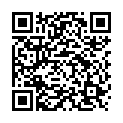|
|
|
| Module code: MEB_24_A_1.05.INTBW |
|
|
2U (2 hours per week) |
|
2 |
| Semester: 1 |
| Mandatory course: no |
Language of instruction:
German |
Assessment:
Course-related work during the semester (presentations, homework, tests) + written exam (100%)
[updated 05.11.2025]
|
INTB-101 (P200-0055) International Modules, Bachelor, ASPO 01.04.2017
, optional course
MEB_24_A_1.05.INTBW (P241-0449, P241-0450, P241-0451) Mechanical Engineering, Bachelor, SO 01.10.2024
, semester 1, optional course
|
30 class hours (= 22.5 clock hours) over a 15-week period.
The total student study time is 60 hours (equivalent to 2 ECTS credits).
There are therefore 37.5 hours available for class preparation and follow-up work and exam preparation.
|
Recommended prerequisites (modules):
None.
|
Recommended knowledge:
available for international students only (with university entrance qualifications from outside Germany)
[updated 18.04.2017]
|
Recommended as prerequisite for:
|
Module coordinator:
Dr. Julia Frisch |
Lecturer: Dr. Julia Frisch
[updated 10.10.2023]
|
Learning outcomes:
The “German (Winter Semester)” module introduces students to the foreign language in the context of everyday and student life. The goal is to teach the linguistic skills and knowledge necessary for communication and reception in the everyday life of a student in a bachelor´s program.
[updated 04.01.2025]
|
Module content:
Topic: “Everyday life and university” small talk, simple conversations with the landlord, building manager, doctor, lecturers, secretary, etc.; asking polite questions and requests; asking for help, simple formal correspondence (including e-mail to lecturers)
[updated 04.01.2025]
|
Teaching methods/Media:
Language course with a communicative-pragmatic approach.
Different types of media are used to accommodate the different learning styles of the international target group. During the class, teaching and learning materials (print, audio, video) will be used that have been compiled specifically for the target group.
To achieve the learning objectives, students are required to actively participate during the classroom sessions. Students are therefore expected to attend at least 80% of the sessions. If attendance is not met without good reason, participation in the exam is not possible.
[updated 04.01.2025]
|
Recommended or required reading:
Authentic materials such as brochures, advertisements, short newspaper articles and radio reports
Basic level textbooks such as Tangram, Studio d, Encounters, Langenscheidt Intensivtrainer etc.
Exam training Start 1/2/B1
Videos: among others Deutsche Welle, Berliner Platz, Netzwerk, DaFür
Learning platform (Campus+/DaFür)
[updated 04.01.2025]
|

